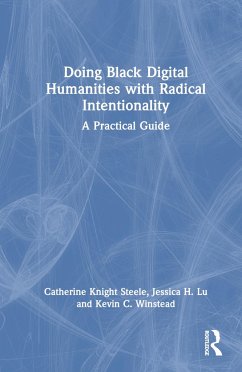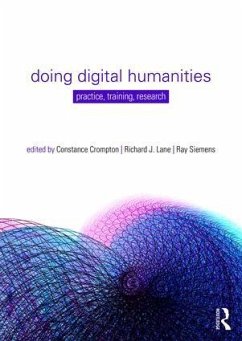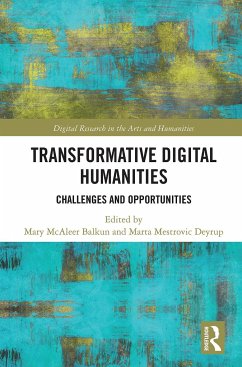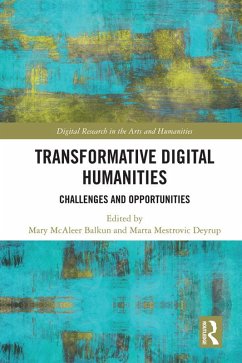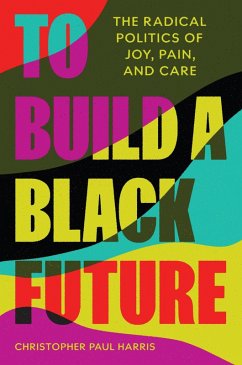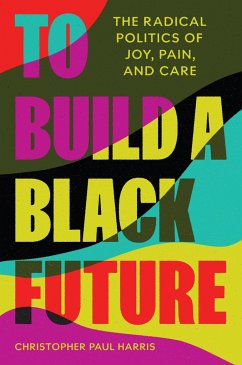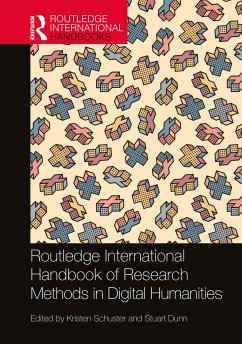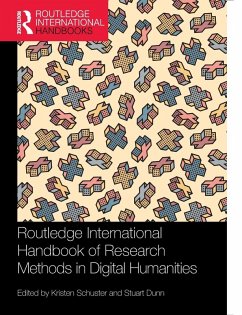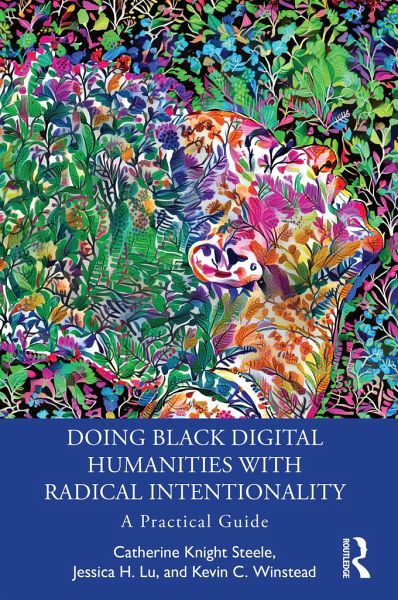
Doing Black Digital Humanities with Radical Intentionality
A Practical Guide
Versandkostenfrei!
Versandfertig in 6-10 Tagen
40,99 €
inkl. MwSt.
Weitere Ausgaben:

PAYBACK Punkte
20 °P sammeln!
Based on the auto-ethnographic work of a team of scholars who developed the first Black Digital Humanities program at a research institution, this book details how to centralize Black feminist praxes of care, ethics, and Black studies in the digital humanities (DH).In this important and timely collection, the authors Catherine Knight Steele, Jessica H. Lu, and Kevin C. Winstead-of the first team of the African American Digital Humanities Initiative-center Black scholars, Black thought, and Black studies in creating digital research and programming. Providing insight into acquiring funding, bui...
Based on the auto-ethnographic work of a team of scholars who developed the first Black Digital Humanities program at a research institution, this book details how to centralize Black feminist praxes of care, ethics, and Black studies in the digital humanities (DH).
In this important and timely collection, the authors Catherine Knight Steele, Jessica H. Lu, and Kevin C. Winstead-of the first team of the African American Digital Humanities Initiative-center Black scholars, Black thought, and Black studies in creating digital research and programming. Providing insight into acquiring funding, building and maintaining community, developing curricula, and establishing a national network in the field, this book moves Black persons and Black thought from the margins to the center with a set of best practices and guiding questions for scholars, students, and practitioners developing programming, creating work agreements, building radically intentional pedagogy and establishing an ethical future for Black DH.
This is essential reading for researchers, students, scholars, and practitioners working in the fields of DH and Black studies, as well as graduate students, faculty, and administrators working in humanities disciplines who are interested in forming centers, courses, and/or research programs in Black digital studies.
In this important and timely collection, the authors Catherine Knight Steele, Jessica H. Lu, and Kevin C. Winstead-of the first team of the African American Digital Humanities Initiative-center Black scholars, Black thought, and Black studies in creating digital research and programming. Providing insight into acquiring funding, building and maintaining community, developing curricula, and establishing a national network in the field, this book moves Black persons and Black thought from the margins to the center with a set of best practices and guiding questions for scholars, students, and practitioners developing programming, creating work agreements, building radically intentional pedagogy and establishing an ethical future for Black DH.
This is essential reading for researchers, students, scholars, and practitioners working in the fields of DH and Black studies, as well as graduate students, faculty, and administrators working in humanities disciplines who are interested in forming centers, courses, and/or research programs in Black digital studies.





